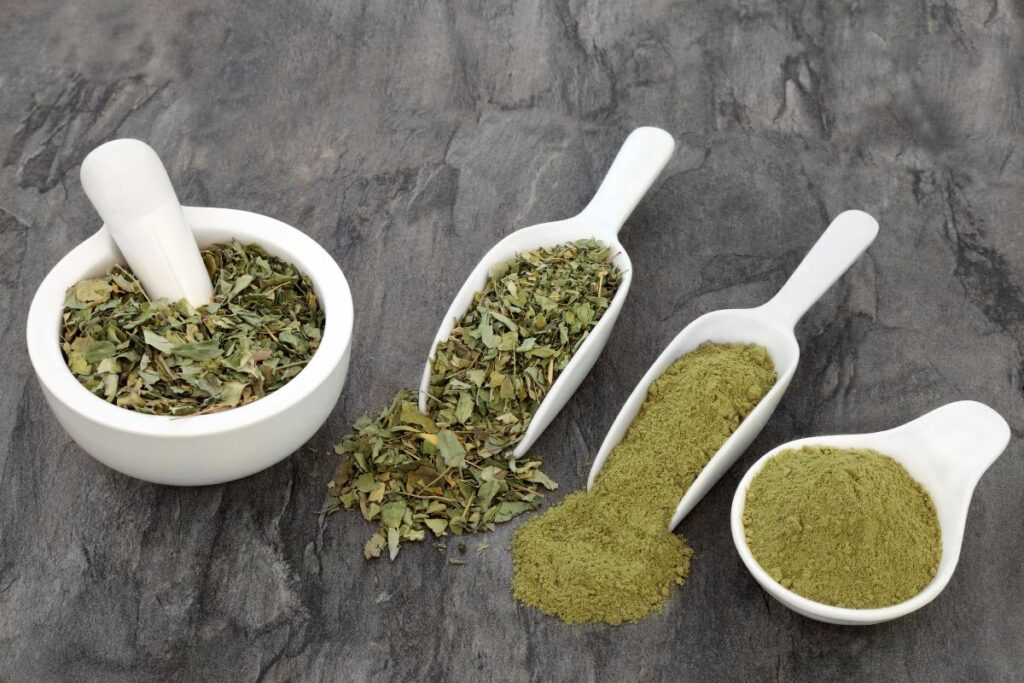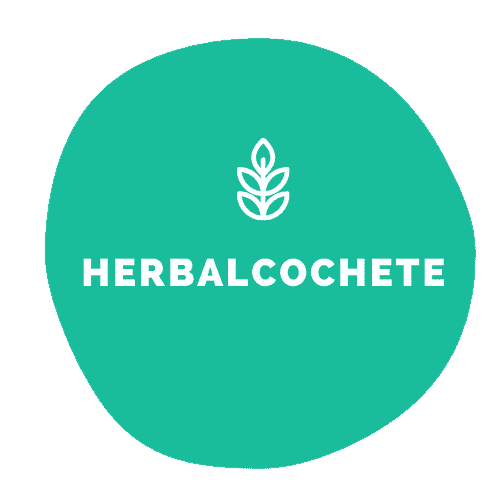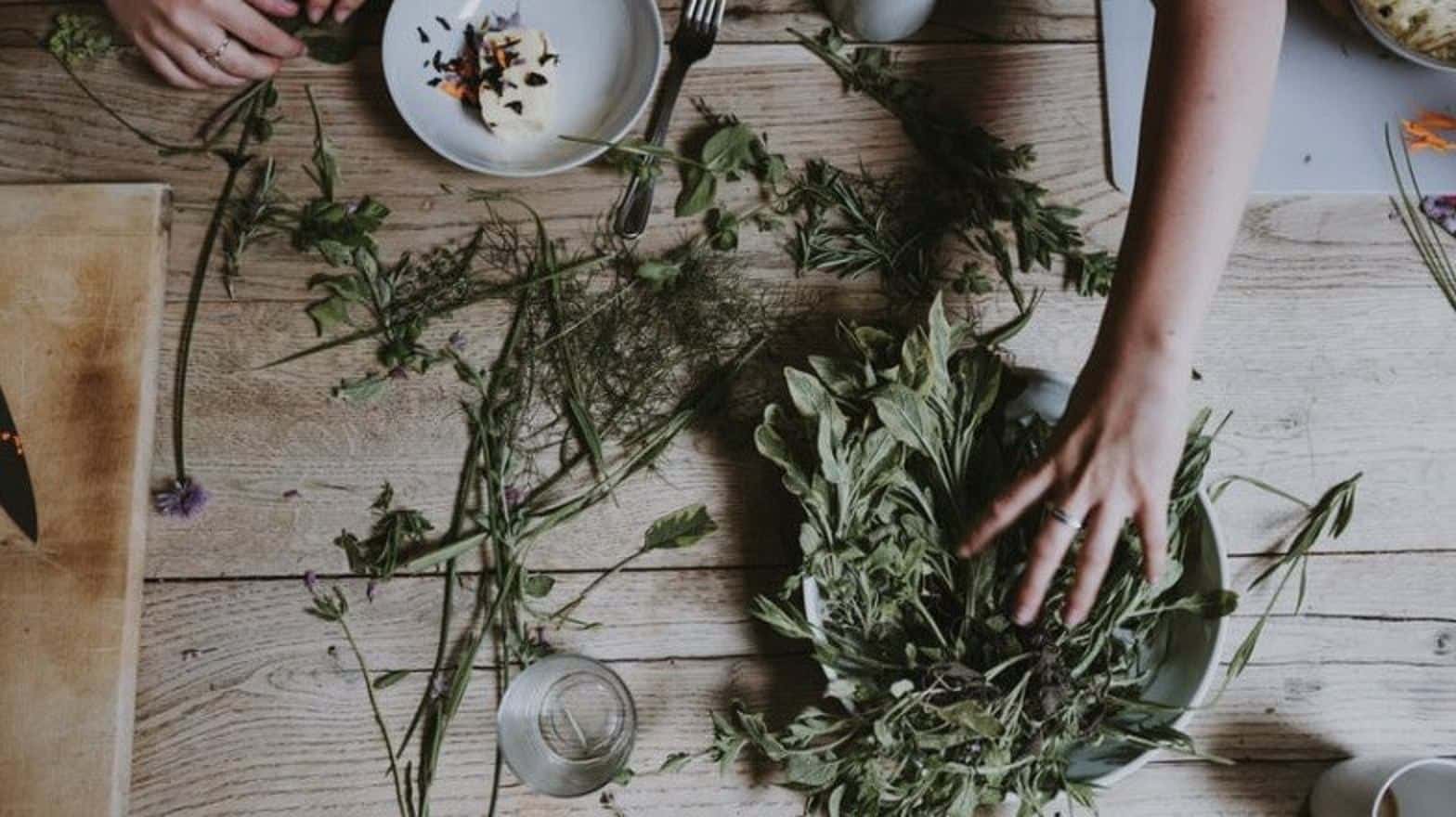Learn how to dry herbs at home: dry plant material – leaves, flower petals, seeds – in a food dehydrator, or on a drying rack standing in a warm, dry place. This is the easiest way to preserve herbs, and the best to use them in soap making, especially in infused oils or waters.
If you have a backyard garden, or even a small herbs garden in your apartment, at some point you will wish to know how to dry herbs at home. To make tea, enrich food flavour, or… make homemade soap and skin care products.
Table of Contents
- Water: A Medium to Grow Bacteria
- Can You Make Your Own Dried Herbs?
- Make Your Own Rack at Home
- Tips and Tricks On How To Dry Herbs At Home
Water: A Medium to Grow Bacteria
Fresh vegetables can go off. So do fresh herbs, flowers and leaves. They can rot, grow mold, and become a magnet to microbes, due to its water content however little it may seem.
This is why water-based products need broad spectrum preservatives (we will go there on another article). Water is a wonderful medium to grow bacteria, microbes and fungus, even the one inside plants.
This is also why it’s much safer to use dried herbs, leaves and flowers on natural cosmetics. Once dried, plant material usually has a shelf-life of one to two years. They last much longer than with water content, still preserving its plant properties.

Can You Make Your Own Dried Herbs?
Food Dehydrator
Using a food dehydrator might be the most expensive way to dry your herbs at home, but it’s a sure way to work. Spread out your leaves or flowers along the food dehydrator rack and setup your food dehydrator to dry under low power. Take note of the best setup for each type of herbs, to repeat this process several times with same results.
Drying Rack
You can also use an herb drying rack. Much cheaper to buy if you don’t have a food dehydrator. This is what I use. Just spread the herbs well and evenly in each “shelf”. With this rack, you are dependant of having a warm and dry area in your house. So, if you live in a cold/humid region this might not work. I’ve tried to dry rose petals in the winter and they just gained mold before drying completely.
However, in the summer, as I live in the Mediterranean region, with temperatures around 20º-30ºC, my attic gets very warm and dry. Rosemary, spearmint, lemongrass and other herbs I have in my backyard dry really well to a crispy consistency, without any mold.
As a last resort, and only if you really need the herbs in a very short time, you can use the oven on very low-heat. If you’re using the oven method, make sure to keep the oven door open a little to let the water vapor escape. Please, be aware that this method destroys some of the herb’s properties.
Make Your Own Rack at Home
As a DIY practitioner, I couldn’t miss the opportunity to encourage you to make your own drying rack:
Tips and Tricks On How To Dry Herbs At Home
I’ve used this video to learn tips and tricks on how to dry and store herbs at home. For example, I’ve learned to use airtight containers to store dried herbs. Check it out:
At the end, the herbs need to be crispy and bone dry. Store it at room temperature (not hot) in sterilized jars or ziplock bags. Shelf life of dried herbs is usually between 1 to 3 years. If you prefer, you can buy online dried herbs.
If you have a question or would like to share your experience with dried herbs, please leave a comment below.


Quero aprender faze base gricerina p faze sabonete.
Olá Maria, obrigada pelo comentário.
Com certeza, pode aprender nesta receita em português: Como fazer uma base de sabonete de glicerina natural.
É uma receita de base glicerinada com oleo de coco e óleo de girassol, muito natural, muito boa e fácil de fazer! Espero que goste! Depois diga como correu a experiência. Se tiver questões, coloque no post da receita.
Gratidão,
Sofia
wow, this was really top notch, water content in herbs make them very difficult to store or preserve due to micro organisms around. Seeing that I can use those devices to dry them really felt nice to me and I purchased it as well and also shared it to my mum. Its really an amazing equipment and I will recommend it for anyone
Hello Collinssss and thanks for your comment.
I am glad you used a dehydrator and it worked for you!! Indeed herbs are safer to use if you properly dehydrate them, for most natural cosmetic products, and for most everything. Otherwise, they rot, get ugly, smell bad and of course are toxic. And that’s just too bad with so much that herbs have to give.
Cheers,
Sofia